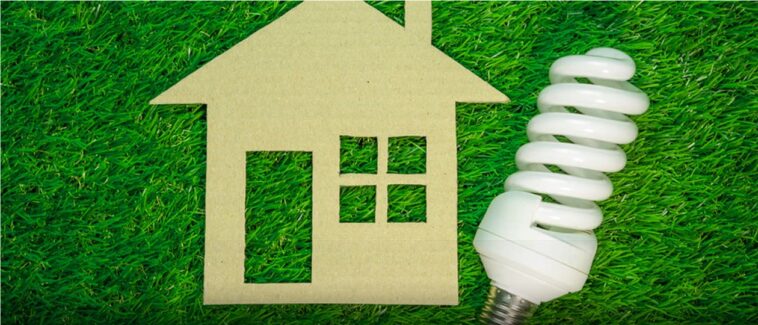In today’s world, where sustainability and environmental consciousness are gaining prominence, making our homes energy efficient has become a top priority. Energy-efficient homes not only reduce our carbon footprint but also offer numerous benefits such as lower utility bills and increased comfort. By implementing effective strategies and adopting energy-saving practices, homeowners can create a more sustainable living environment while enjoying long-term cost savings.
Explore the Contents
- 1 Best Tips to Make Energy Efficient Homes
- 2 Understanding Energy Efficiency
- 2.1 Insulating Your Home
- 2.2 Upgrading to Energy-Efficient Appliances
- 2.3 Installing Programmable Thermostats
- 2.4 Harnessing Natural Light
- 2.5 Using Energy-Efficient Lighting
- 2.6 Sealing Air Leaks
- 2.7 Proper Ventilation and Airflow
- 2.8 Incorporating Renewable Energy Sources
- 2.9 Implementing Smart Home Technology
- 3 Conclusion
- 4 FAQs
Best Tips to Make Energy Efficient Homes
This article presents the nine best tips to make an energy-efficient home. These tips cover various aspects of energy conservation, from insulation and appliance upgrades to harnessing natural light and incorporating renewable energy sources. By implementing these measures, you can significantly reduce your energy consumption, promote sustainability, and create a comfortable living space for you and your family.
Read More: Transforming Your Home with Smart Technology
Understanding Energy Efficiency
To begin, it is important to have a clear understanding of what energy efficiency means. Energy efficiency refers to the optimal use of energy to achieve a specific task or function while minimizing waste. By maximizing energy efficiency, you can reduce your carbon footprint and save money on energy costs.
Insulating Your Home
Proper insulation is essential for maintaining an energy-efficient home. Insulation helps regulate indoor temperatures, preventing heat loss during the winter and heat gain during the summer. By insulating your walls, floors, and attics, you can reduce your reliance on heating and cooling systems, resulting in lower energy consumption and increased comfort.
Upgrading to Energy-Efficient Appliances
Older appliances tend to consume more energy compared to their energy-efficient counterparts. Consider upgrading to energy-efficient appliances such as refrigerators, washing machines, dishwashers, and air conditioners. Look for appliances with the ENERGY STAR label, as they have been certified for their energy-saving capabilities. Not only will this reduce your energy consumption, but it will also extend the lifespan of your appliances.
Installing Programmable Thermostats
Installing programmable thermostats can have a significant impact on your energy usage. These thermostats allow you to set different temperature levels based on your daily routine. For example, you can program the thermostat to lower the temperature when you’re not at home or during the night when you’re sleeping. By optimizing temperature control, you can minimize energy waste and create a more energy-efficient home environment.
Harnessing Natural Light
Maximizing the use of natural light is a simple yet effective way to save energy. During the day, open your curtains and blinds to allow sunlight to illuminate your home. This reduces the need for artificial lighting, resulting in lower electricity consumption. Additionally, natural light creates a warm and inviting atmosphere, enhancing the overall aesthetic of your living space.
Using Energy-Efficient Lighting

Lighting is a significant contributor to a home’s energy consumption. Replace traditional incandescent bulbs with energy-efficient alternatives such as LED (Light-Emitting Diode) or CFL (Compact Fluorescent Lamp) bulbs. These types of bulbs use significantly less energy and have a longer lifespan, reducing both energy consumption and the frequency of bulb replacements.
Sealing Air Leaks
Air leaks in your home can lead to significant energy loss. Identify and seal any gaps or cracks around windows, doors, and other openings to prevent air leakage. Weatherstripping and caulking are effective solutions for sealing gaps and improving energy efficiency. By reducing drafts and maintaining airtightness, you can create a more energy-efficient environment and enhance indoor comfort.
Proper Ventilation and Airflow
Proper ventilation is crucial for maintaining good indoor air quality while also reducing the strain on your heating and cooling systems. Ensure your home has adequate ventilation by installing exhaust fans in kitchens and bathrooms. This helps remove excess moisture, odors, and pollutants, improving indoor air quality and reducing the workload on your HVAC (Heating, Ventilation, and Air Conditioning) systems.
Incorporating Renewable Energy Sources
Embracing renewable energy sources is a sustainable way to make your home more energy efficient. Consider installing solar panels on your roof to harness the power of the sun and generate electricity. Solar energy is a clean and renewable source that can significantly reduce your dependence on the grid. In some cases, excess energy generated can even be sold back to utility companies, further offsetting costs and promoting sustainability.
Implementing Smart Home Technology
Integrating smart home technology into your energy-efficient home can further enhance energy savings. Smart devices such as thermostats, lighting systems, and power outlets allow you to monitor and control your energy usage remotely. With the help of smartphone apps or voice assistants, you can adjust temperature settings, turn off lights, and manage energy-consuming devices even when you’re away from home. This level of control and automation helps optimize energy usage and ensures that energy is not wasted unnecessarily.
Read More: 7 Best Ideas For Creating a Meditation Room
Conclusion
By implementing these nine best tips, you can transform your house into an energy-efficient home. Not only will you contribute to a greener planet, but you will also enjoy long-term cost savings. Remember, even small changes can make a big difference when it comes to energy efficiency. Start making these changes today and create a more sustainable and economical living space.
FAQs
How much can I save on energy bills by making my home energy efficient?
By making your home energy efficient, you can save anywhere from 10% to 30% on your energy bills. The exact amount depends on factors such as the size of your home, current energy consumption, and the efficiency measures you implement.
Are energy-efficient appliances more expensive?
Energy-efficient appliances may have a slightly higher upfront cost compared to conventional ones. However, the long-term savings on energy bills outweigh the initial investment. Additionally, many governments and utility companies offer incentives and rebates for purchasing energy-efficient appliances, making them more affordable.
Can I make my home energy efficient without major renovations?
Yes, there are several energy-saving measures that you can implement without undertaking major renovations. Simple changes like sealing air leaks, upgrading lighting, and adjusting thermostat settings can significantly improve energy efficiency without the need for extensive remodeling.
Is solar energy a viable option for every home?
Solar energy can be a viable option for many homes, but its feasibility depends on factors such as location, available sunlight, and local regulations. Consult with a professional solar installer to assess if solar panels are suitable for your home and to determine the potential benefits and costs.
How long does it take to recoup the cost of installing solar panels?
The payback period for installing solar panels varies depending on factors such as installation cost, local energy rates, and available incentives. On average, homeowners can expect a payback period of 5 to 15 years, after which they can enjoy free or significantly reduced electricity costs.



